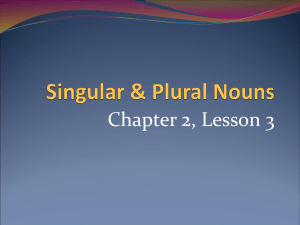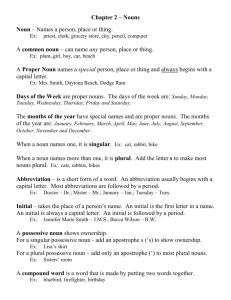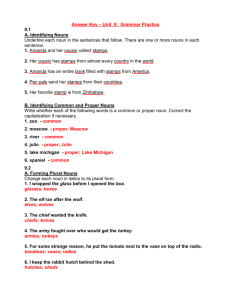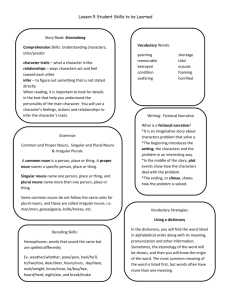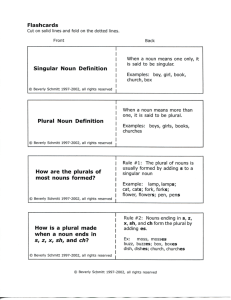Nouns Study Guide
advertisement
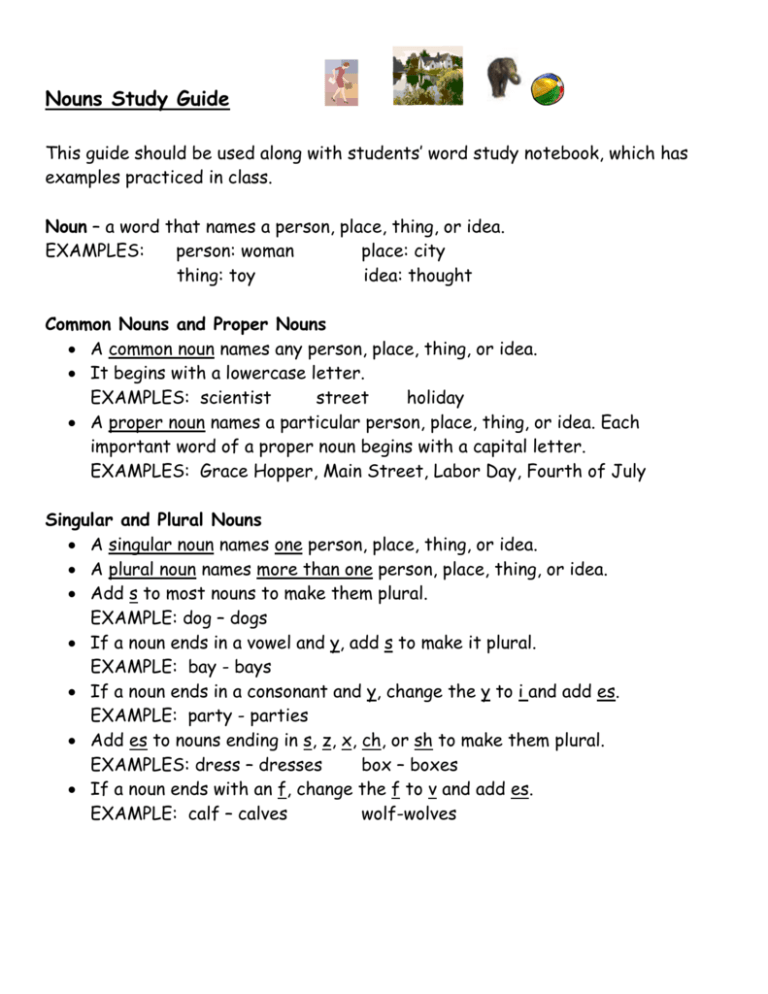
Nouns Study Guide This guide should be used along with students’ word study notebook, which has examples practiced in class. Noun – a word that names a person, place, thing, or idea. EXAMPLES: person: woman place: city thing: toy idea: thought Common Nouns and Proper Nouns A common noun names any person, place, thing, or idea. It begins with a lowercase letter. EXAMPLES: scientist street holiday A proper noun names a particular person, place, thing, or idea. Each important word of a proper noun begins with a capital letter. EXAMPLES: Grace Hopper, Main Street, Labor Day, Fourth of July Singular and Plural Nouns A singular noun names one person, place, thing, or idea. A plural noun names more than one person, place, thing, or idea. Add s to most nouns to make them plural. EXAMPLE: dog – dogs If a noun ends in a vowel and y, add s to make it plural. EXAMPLE: bay - bays If a noun ends in a consonant and y, change the y to i and add es. EXAMPLE: party - parties Add es to nouns ending in s, z, x, ch, or sh to make them plural. EXAMPLES: dress – dresses box – boxes If a noun ends with an f, change the f to v and add es. EXAMPLE: calf – calves wolf-wolves See the Word Study notebook for additional notes and practice. Irregular Plural Nouns Some nouns change spelling in the plural form. Other nouns have the same singular and plural form. EXAMPLES: Change Spelling Same Singular and Plural man – men salmon child – children elk foot – feet deer goose – geese trout woman – women sheep ox-oxen fish


